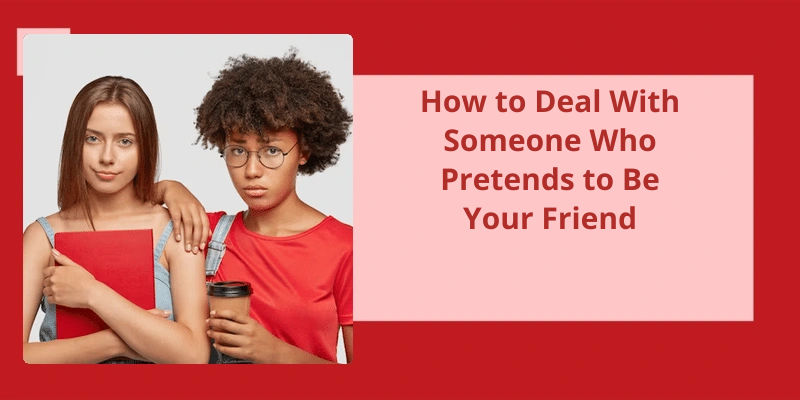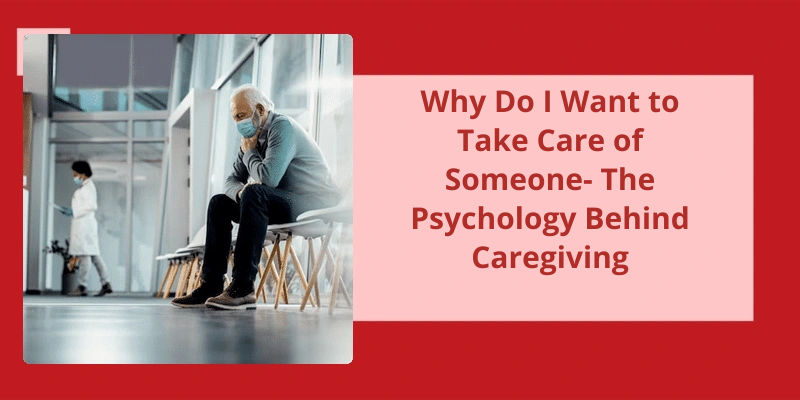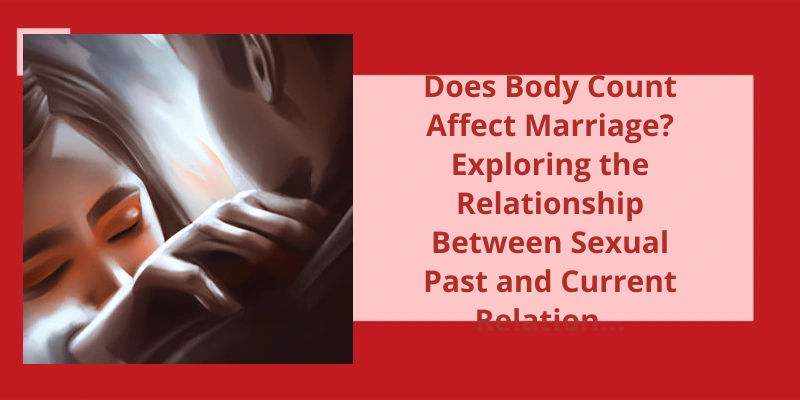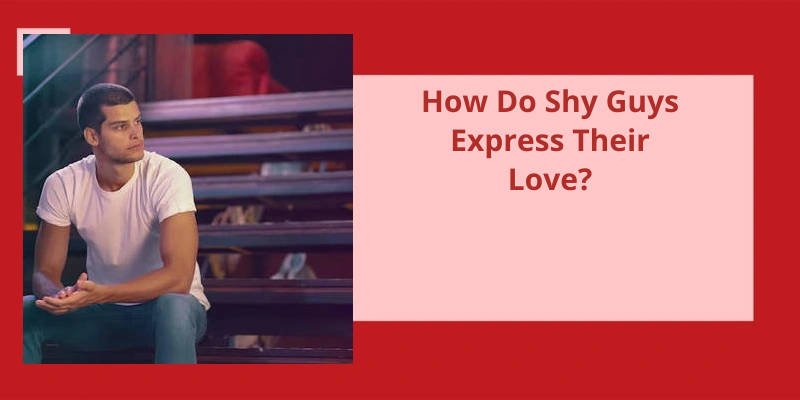These individuals can be deceptive, manipulative, and draining as they take advantage of your trust and goodwill. Whether it's for personal gain or to alleviate their own insecurities, fake people can impact your life negatively. However, knowing how to recognize and deal with them can help you avoid their drama and preserve your peace of mind. In this article, we'll explore some tips on how to handle fake friends and protect yourself from their harmful behavior. From keeping a healthy distance to seeking out help, we'll provide you with actionable steps to navigate the intricacies of these tricky relationships. So, let's dive in and learn how to deal with those who pretend to be your friend.
Should You Ignore Fake Friends?
Having fake friends can be one of the most heartbreaking experiences in life. These are people who pretend to be your friends but are actually using you for their selfish interests. Many people find it hard to break ties with their fake friends because they don’t want to be left with no friends at all. However, should you ignore fake friends? The answer is a resounding yes.
They’re the kind of people who smile to your face but will badmouth you behind your back. They aren’t genuine and can’t be trusted.
You need to surround yourself with people who genuinely care about you and your life goals. Hanging out with fake friends can derail your growth and hold you back from achieving your dreams.
These people can cause more harm than good to your life, and it’s essential to break ties with them. Once you’re free from their toxic influence, focus on finding real friends who’ll support you in achieving your goals.
Signs That Someone Is a Fake Friend and How to Recognize Them.
- They only hang out with you when it benefits them
- They gossip about you behind your back
- They never support you or your goals
- They only talk about themselves and their problems
- They never apologize or take responsibility for their mistakes
- They’re never happy for your successes
- They make fun of you or belittle you
- They’re only interested in superficial things
- They never ask about your life or interests
- They’re always negative or pessimistic
When it comes to friendships, it’s important to consider how they make you feel. If you find yourself constantly feeling drained, disrespected, or simply not cared for, it may be time to reevaluate the relationship. It’s never easy to walk away from a friendship, but sometimes it’s necessary for your own well-being. In this article, we’ll discuss the signs of a toxic friendship and offer some tips for how to gracefully end the relationship if need be.
Is It OK to Leave Fake Friends?
As much as it can hurt to walk away from a friendship, sometimes it’s necessary for your own mental health and well-being. Fake friends can often bring negativity and drama into your life, and if it’s starting to affect how you view yourself, it might be a sign that it’s time to cut ties. It’s important to evaluate how this person makes you feel and whether or not they’re contributing positively to your life.
It’s not uncommon to have friends who don’t stick around forever. People grow and change, and sometimes that means growing apart from someone who was once an important part of your life. While it’s never easy to let go of a relationship, it’s important to recognize when it’s time to move on. Holding onto toxic friendships out of a sense of obligation or fear of being alone can do more harm than good in the long run.
It’s important to trust your instincts and do whats best for your mental health and well-being. If you feel that someone is no longer a positive influence in your life, it’s okay to distance yourself and focus on the relationships that bring you joy and fulfillment. Remember that your happiness and mental health should always be your top priority, and sometimes that means leaving people behind who don’t support that.
It’s important to identify fake friends so that you can distance yourself from them and cultivate genuine relationships. But how do you spot a fake friend? It’s not always easy, but there are some common signs to watch out for.
What’s Not a Real Friend?
One of the biggest indicators of a fake friend is their lack of genuine interest in your life. They may also be unreliable, frequently canceling plans or showing up late without a valid excuse.
They may gossip or spread rumors about you behind your back, or they may break your confidence by sharing personal information you confided in them. Alternatively, they may only reach out to you when they need something from you, such as a favor or an introduction to someone you know.
A fake friend may also be emotionally draining to be around. They may constantly complain about their own problems and expect you to be their emotional support without reciprocation. They may also manipulate you or guilt you into doing things for them, or try to control your behavior and choices.
They may discourage you from pursuing your goals or belittle your accomplishments, or they may try to keep you reliant on them by stifling your independence.
In some cases, people who behave like fake friends arent necessarily malicious or intentionally trying to hurt you. They may simply not know how to be a good friend due to their own emotional baggage or past experiences. However, regardless of the underlying cause, it’s important to recognize when a friendship isn’t serving your best interests and to seek out healthier relationships.
However, it’s also important to recognize when a fake friend isn’t changing and may never truly become a real friend. In these cases, it may be necessary to distance yourself and focus on building healthy and authentic relationships with those who truly value and support you.
Can a Fake Friend Turn Into a Real Friend?
But, can you really call that person a “fake friend” if they eventually become a real friend? Or were they just going through a rough patch in their life and needed time to work through their issues? It’s important to remember that friendships, like any relationship, have ups and downs and sometimes take work to maintain.
On the other hand, it’s also important to recognize when someone is consistently treating you poorly and not making an effort to improve the relationship. It’s okay to distance yourself from someone who isn’t treating you with respect and kindness. It’s not worth sacrificing your own well-being for the sake of keeping a friendship alive.
However, if the person has made a genuine effort to improve and has shown consistent positive behavior over time, it’s possible to rebuild the friendship. It takes effort and communication from both parties, but it can be a rewarding experience to see a friendship evolve and grow.
Ultimately, the decision to continue a friendship with someone who was once a fake friend is up to the individual. It’s important to trust your instincts and prioritize your own well-being. If the friendship is no longer serving you in a positive way, it may be time to let go and move on. But if you see potential for a real, positive friendship, it may be worth putting in the effort to make it work.
Source: How to Deal with Fake Friends: 13 Steps (with Pictures)
The importance of distinguishing between true friends and false friends can’t be overstated. True friends are a source of support, comfort, and joy, while false friends can cause stress and disappointment. In this article, we will explore some of the ways in which you can tell the difference between a true friend and a false friend, so that you can build more meaningful and rewarding relationships.
How Can We Distinguish Between a True Friend and a False Friend?
, I was on a phone call with one of my closest friends. We were discussing the complexities of maintaining friendships in our adult lives. We both agreed that identifying true friends isn’t an easy task. We realized that it takes more than just a common interest or shared history to determine what makes a sincere friend.
One of the key factors that differentiates a true friend from a false one is the level of emotional support they provide. A true friend will listen to you, offer advice, and be genuinely invested in your well-being. They’re there to hold your hand and console you during tough times. A fake friend, however, might only be concerned with their own needs or wants. They could pretend to be there for you, but only when it suits their interests.
Trust and honesty are also crucial components of any true friendship. If you can confide in your friend without fear of judgment or betrayal, then thats a sign of a genuine connection. A true friend will never put you in a compromising position or talk behind your back. They value your trust and respect your privacy. False friends, on the other hand, might spread rumors about you or reveal any secrets youve told them.
Conclusion
In conclusion, dealing with someone who pretends to be your friend can be a challenging experience. It can be difficult to navigate the situation and maintain your dignity. However, by following a few key principles, you can successfully tackle the problem. Keep a healthy distance, don't engage in their games, remember that it's not about you, stay above the fray, be honest, and seek out help when necessary. Ultimately, the most important thing to remember is to be a friend yourself. Genuine connections with others will be rewarding in the long run, and will help you to identify and avoid those who aren't worth your time. So stay true to yourself, and don't let the fake people get you down.






